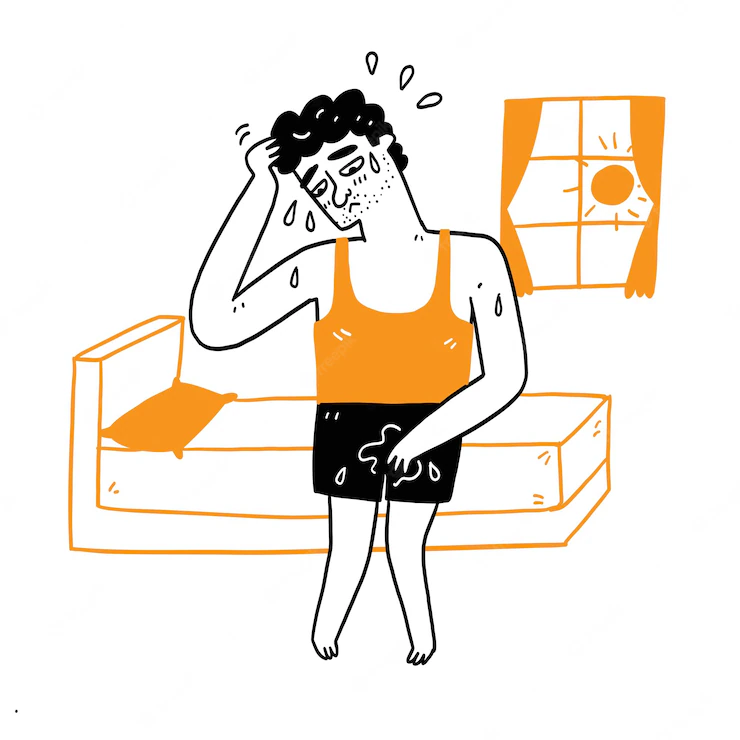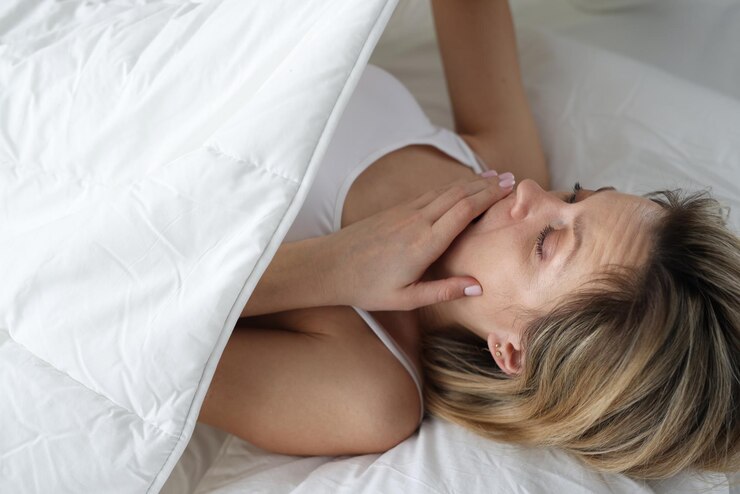Spiritual Meaning Of Bedwetting In Adults - A Symbol Of Feeling Toxic
Spiritual meaning of bedwetting in adults depends on the condition of the person involved in bedwetting. There might be a psychological explanation for bedwetting. Some psychologists and therapists say that bedwetting could be a holdover from when people were babies or a sign that someone doesn't trust their environment.
Author:Suleman ShahReviewer:Han JuNov 05, 2022147 Shares147K Views

The spiritual meaning of bedwetting in adultsdepends on the condition of the person involved in bedwetting. There might be a psychological explanation for bedwetting. Some psychologists and therapists say that bedwetting could be a holdover from when people were babies or a sign that someone doesn't trust their environment.
Bedwetting occurs when a person's urinary system is unable to prevent pee from leaking into their clothing and bed. What it boils down to is urinating while unconscious. Many other mental and emotional problems, as well as physical ones, might contribute to this. Even if you are an adult coping with bedwetting symptoms, it is important to understand the underlying causes, which may be traced back to your childhood.
Spiritual Meaning Of Bedwetting In Adults
Bedwetting is a common childhood disorder with serious emotional and psychological consequences. Sleep wetting is a sign that you're ready to let go of some intense sentiments that have been building up within you. It's a sign that something in your lifeneeds to change.
A lifelong practice of bedwetting in adulthood may be the result of suppressed feelings that have been building up for a long time. Maybe you worry that letting go of these feelings will permanently alter who you are.
Nevertheless, letting go of these feelings may enable you to progress in life, which in turn can lead to better outcomes for you and the people around you. If an adult still wets the bed after reaching maturity, it may be a sign of abuse or exploitation.
There are a number of other possible manifestations of this:
- Someone who acts entitled to resources they do not deserve (money, affection, etc.) or who acts out in other ways, such as by assaulting their children, is behaving entitled.
- The person may also display this trait if they insist on getting something they are not entitled to.
- There are many who attribute this conduct to a more benign explanation. For example, if you were abused as a child, you might do the same thing to your own children without even realizing it.
If you're an adult and you suddenly start wetting the bed for no reason, you may want to see a therapist or counselor for help in figuring out why this is happening and how to stop it. Anyway, it's a good idea to think about doing this.
People Also Ask
Is Bed Wetting In Adults Psychological?
Bedwetting may be brought on by stress, major life changes, or trauma. Obstructive sleep apnea and sleepwalking are two sleep disordersthat have been linked to increased levels of atrial natriuretic peptides in the blood. This chemical makes more urine, or diuresis, which is the process of going to the bathroom more often.
What Does Bedwetting Mean In Adults?
Bedwetting, also known as nocturnal enuresis, is uncontrollable urination while sleeping. Bedwetting may be an indication of difficulty with bladder control, such as incontinence or an overactive bladder, or it may indicate a more serious structural condition, such as an enlarged prostate or bladder cancer.
Can Bedwetting Be A Spiritual Problem?
Bedwetting in adults looks and acts differently than in kids. An investigation is the only way to find out what caused it. Bedwetting, also known as enuresis, is a medical condition, not a spiritual one, as Dr. Olamiji Oluwagbemiga Ibitoye said.
Final Words
Sometimes wetting the bed is a spiritual sign of far greater significance. A youngster who is angry or frustrated may pee on the bed as a means of expressing those feelings.
Similarly, a child may resort to such behavior if they are trying to obtain the attention of an adult caregiver. Understanding what's triggering the bedwetting is the first step toward a cure.

Suleman Shah
Author
Suleman Shah is a researcher and freelance writer. As a researcher, he has worked with MNS University of Agriculture, Multan (Pakistan) and Texas A & M University (USA). He regularly writes science articles and blogs for science news website immersse.com and open access publishers OA Publishing London and Scientific Times. He loves to keep himself updated on scientific developments and convert these developments into everyday language to update the readers about the developments in the scientific era. His primary research focus is Plant sciences, and he contributed to this field by publishing his research in scientific journals and presenting his work at many Conferences.
Shah graduated from the University of Agriculture Faisalabad (Pakistan) and started his professional carrier with Jaffer Agro Services and later with the Agriculture Department of the Government of Pakistan. His research interest compelled and attracted him to proceed with his carrier in Plant sciences research. So, he started his Ph.D. in Soil Science at MNS University of Agriculture Multan (Pakistan). Later, he started working as a visiting scholar with Texas A&M University (USA).
Shah’s experience with big Open Excess publishers like Springers, Frontiers, MDPI, etc., testified to his belief in Open Access as a barrier-removing mechanism between researchers and the readers of their research. Shah believes that Open Access is revolutionizing the publication process and benefitting research in all fields.

Han Ju
Reviewer
Hello! I'm Han Ju, the heart behind World Wide Journals. My life is a unique tapestry woven from the threads of news, spirituality, and science, enriched by melodies from my guitar. Raised amidst tales of the ancient and the arcane, I developed a keen eye for the stories that truly matter. Through my work, I seek to bridge the seen with the unseen, marrying the rigor of science with the depth of spirituality.
Each article at World Wide Journals is a piece of this ongoing quest, blending analysis with personal reflection. Whether exploring quantum frontiers or strumming chords under the stars, my aim is to inspire and provoke thought, inviting you into a world where every discovery is a note in the grand symphony of existence.
Welcome aboard this journey of insight and exploration, where curiosity leads and music guides.
Latest Articles
Popular Articles
